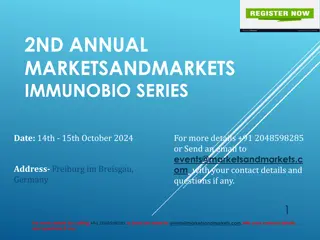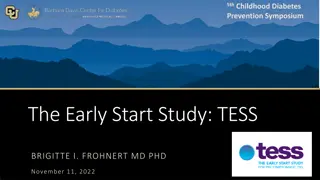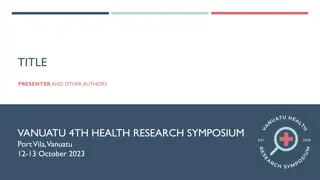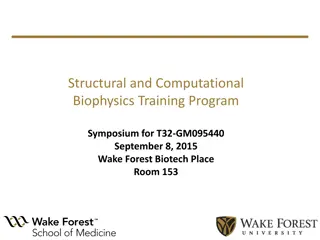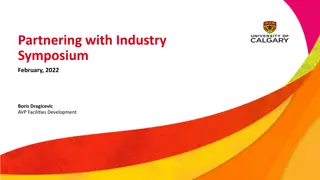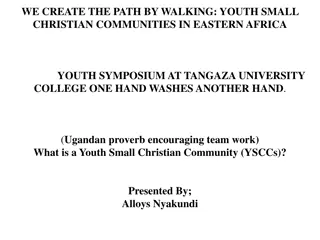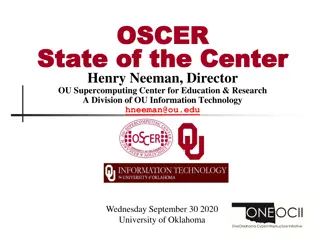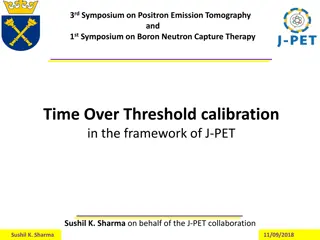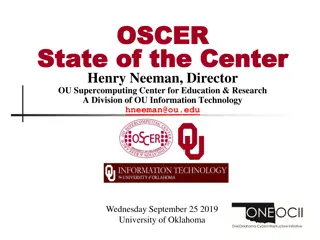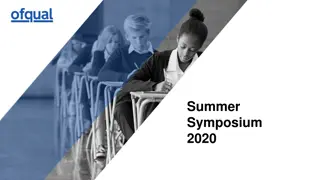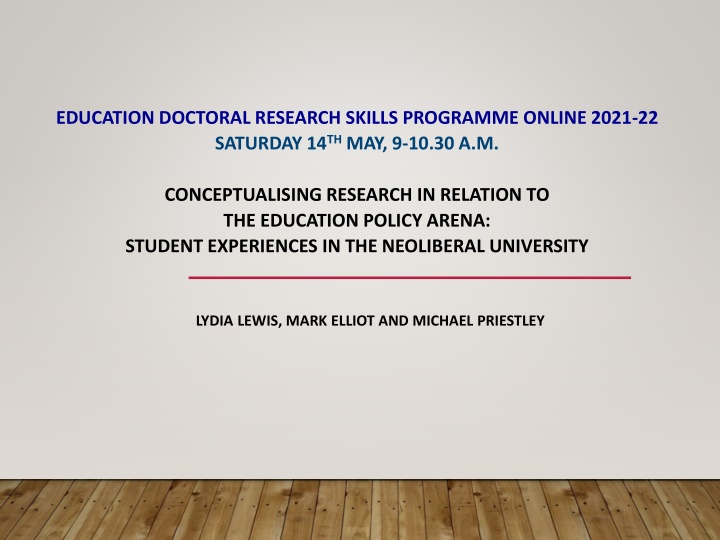
Exploring Belonging and Identity in the Neoliberal University Context
Delve into the complex concepts of belonging and identity within the context of the neoliberal university through research and case studies. Understand the social, structural, and political dimensions that shape student experiences and perceptions. Explore the dichotomy of belonging and unbelonging, as well as the various levels of analysis in academic and institutional settings.
Download Presentation

Please find below an Image/Link to download the presentation.
The content on the website is provided AS IS for your information and personal use only. It may not be sold, licensed, or shared on other websites without obtaining consent from the author. If you encounter any issues during the download, it is possible that the publisher has removed the file from their server.
You are allowed to download the files provided on this website for personal or commercial use, subject to the condition that they are used lawfully. All files are the property of their respective owners.
The content on the website is provided AS IS for your information and personal use only. It may not be sold, licensed, or shared on other websites without obtaining consent from the author.
E N D
Presentation Transcript
EDUCATION DOCTORAL RESEARCH SKILLS PROGRAMME ONLINE 2021-22 SATURDAY 14THMAY, 9-10.30 A.M. CONCEPTUALISING RESEARCH IN RELATION TO THE EDUCATION POLICY ARENA: STUDENT EXPERIENCES IN THE NEOLIBERAL UNIVERSITY LYDIA LEWIS, MARK ELLIOT AND MICHAEL PRIESTLEY
ACADEMIC (UN)BELONGING AND THE NEOLIBERAL UNIVERSITY: A COMPARATIVE INSTITUTIONAL CASE STUDY OF DOCTORAL RESEARCHERS EXPERIENCES AT TWO ENGLISH UNIVERSITIES DR LYDIA LEWIS (LEAD) PROJECT TEAM: DR GURPINDER LALLI, TAYEBA KHAN, AMY WELLS, DR JAWIRIA NASEEM, DR ANNA LAVIS MAY 2022
PROJECT WEB SITE ACADEMIC (UN)BELONGING AND THE NEOLIBERAL UNIVERSITY EDUCATION OBSERVATORY
CONCEPTUALISING BELONGING Belonging - affective embodied experiences of comfort, fitting in or being at home in a place, group or situation. Different aspects: feelings, identity, practice /(inter)actions, relationships, ethics and values. Social structural dimensions of belonging and identity - how intersecting categories of difference shape experience. Politics of belonging: the social creation of boundaries of exclusion and inclusion (Yuval-Davis). Non-belonging: feeling out of place, fraudulence ( imposter syndrome ) - a product of, and embedded within, social structural relations. Unbelonging: a symbolic mark of distinction of groups or individuals who are not included in a community, or who position themselves outside the community (Christensen).
SAVAGE ET AL. ON LOCAL BELONGING Belonging as socially constructed, embedded and processual, because people reflexively assess whether they feel comfortable in a given place in relation to their life course and their positions in relation to specific fields. (Savage et al., 2005)
DIMENSIONS OF BELONGING (CHRISTENSEN) Social location Individual attachment Ethical and to collectives/groupings political value systems
BELONGING: ANALYTICAL LEVELS (CHRISTENSEN, 2009) Macro- giving support to larger imagined communities Meso association with collective organisations and communities (identity positions) Micro everyday life, local communities and lived lives.
PREVIOUS RESEARCH ON DOCTORAL STUDENTS EXPERIENCES Emotional intensity of doctoral study due to its transformative nature & associated identity work ((Starke-Meyerring, 2011). Social structural dimensions of belonging and identity - how intersecting categories of difference shape doctoral experience (e.g. Ahmet, 2020; Handforth 2018). Mental health - high levels of mh problems among doctoral researchers and need for strategies for reducing isolation and improving support networks. - risk factors (isolation, liminal status, susceptible to webs of power within HEIs, being female, uncertainty, peer pressure, high workload, perfectionism, competing personal and professional demands, imposter syndrome, poor supervisory communication) and protective factors (social support, viewing the PhD as a process, a positive student-supervisor relationship) (Berry, Niven and Hazell, 2021; Hazell et al., 2020; Jackman et al., 2021; Schmidt and Hansson, 2018). Factors from the departmental context and academic culture as important (e.g. relationships with other academics and peers; lab groups, office space, access to a common room). (Deem and Brehony, 2000; Delamont, 2001; Leonard et al, 2006; Schmidt and Hansson, 2018; Morris, 2019; Hazell et al, 2020; Jackman et al, 2021.)
THE NATURE OF NEOLIBERAL ACADEMIA Corporate university/ academic capitalism / takeover of HE by a logic of the market ( economisation of HE and academic work); privatisation Marketisation, managerialism, performativity Corporate values competitiveness, performance and profitability Intensification of work for academics Research environments characterised by corporate masculinity and neopatriarchy (see Hearn, 2017) Individualistand competitive research cultures Atomisation of academics and lack of academic community more generally. Fear, mistrust and lack of openness and authenticity/normal human relations. Responsibilisation of individuals for managing their own wellbeing. Shrinking of spaces for critical academic engagement.
GENDER REGIMES IN ACADEMIA (HEARN, 2017) The contemporary scene conjoins neoliberal, supposedly autonomous universities, neoliberal transnational patriarchies, and neoliberal, individual(istic) academic masculinities. Thus, changing gendered intersectional relations occur between the organisational forms of academia, the international context of academia and the constructions of individual academics. Together, these make historically different, distinct and changing academic relations.
PSYCHOSOCIAL EXPERIENCES AND FEELINGS IN CONTEXT (GILL, 2010) Need to make links between macro-organisation and institutional practices on the one hand and experiences and affective states on the other, and open up an exploration of the ways in which these may be gendered, racialised, and classed. Connect feelings with neoliberal practices of power in the Western university. Make intelligible the relationship between economic and political shifts, transformations in work and psychosocial experiences.
GILL (2010): MAKING LINKS Transformations in capitalism Psychosocial experiences of working in the university New forms of governmentality
NEOLIBERAL ACADEMIA AND DOCTORAL STUDY Doctoral students subject to neoliberal discourse e.g. measures of performativity and reductions in support. Move to mass participation system as opposed to apprenticeship model. Instrumentalism of doctoral study for the knowledge economy/ building human capital rather than personal, educational development. Marketised/transactional nature of postgraduate degrees; student as consumer. Focus on PGR student employability and increased expectations (e.g. publishing, public engagement and impact) while timeframe for completion has shrunk. Increased pressure/demands and lack of time for PGR students and academics. Very competitive and intensified academic job market.
THE AFFECTIVE POLITICS OF DOCTORAL STUDY (BURFORD, 2015, 2017, 2018) Affective consequences of transformations in HE also affect doctoral students. Neo-liberal discourse of self-resilience and responsibility. Cruel optimism associated with ideals of the academic good life and the reality of academic labour markets and work today.
BURFORD, (2017) CONCEPTUALISING DOCTORAL WRITING AS AN AFFECTIVE- POLITICAL PRACTICE , P. 19. Today s doctoral students are called to think of themselves and their doctoral projects in new ways ways that are increasingly narrow, utilitarian and economistic (Lee et al., 2009). This has had resulting impacts upon the experience of doctoral degrees, which are arguably now more pressurised, audited, competitive and stressful.
DOCTORAL PROGRAMMES ECOLOGY Public engagement and impact Work experience and career planning Research culture and hidden curriculum Researcher Development Programme Doctoral Training Programmes Research project with supervision and support
THEMES EMERGING FROM OUR FOCUS GROUPS WITH DOCTORAL RESEARCHERS enterprise culture and the need for self-promotion; the importance and mitigating effects of relationships with supervisors, but also the reductive effects on these; sparsity and competition in relation to research and teaching assistant roles; the limited, reductionist and self-responsibilising nature of student counselling services; the importance of office space; feelings of isolation and institutional detachment for international students based overseas; disidentification with, or personal distancing from, academia for some non- traditional student groups
REFERENCES Ahmet, A. (2020), Who is worthy of a place on these walls? Postgraduate students, UK universities, and institutional racism. Area, 52(4), pp.678-686. https://rgs-ibg.onlinelibrary.wiley.com/doi/pdfdirect/10.1111/area.12627 Berry, C., Niven, J.E. and Hazell, C.M., 2021. Personal, social and relational predictors of UK postgraduate researcher mental health problems. BJPsych Open, 7(6). Burford, James,2018.The trouble with doctoral aspiration now.International Journal of Qualitative Studies in Education,31 (6),pp. 487-503 Burford, James,2017.Conceptualising doctoral writing as an affective-political practice.International Journal of Doctoral Studies,12,pp. 17-32 Burford, James,2017.Not writing, and giving ?zero-f**ks' about it : queer(y)ing doctoral ?failure?.Discourse: Studies in the Cultural Politics of Education,38 (4),pp. 473-484 Burford, James,2015.Queerying the affective politics of doctoral education: toward complex visions of agency and affect.Higher Education Research & Development,34 (4),pp. 776-787. Burford, J. and McChesney, K. (2021), Supporting distance doctoral students' mental health and wellbeing, Presentation to the SMaRteN Student Mental Health Network Virtual Lab for PhD researchers (online), 18thNov. Christensen< Ann-Dorte (2009) Belonging and Unbelonging from an Intersectional Perspective, Gender, Technology and Development, 13:1, 21- 41, DOI: 10.1177/097185240901300102 Deem, R. and K. J. Brehony (2000). "Doctoral Students' Access to Research Cultures -Are some more unequal than others?" Studies in Higher Education 25 (2): 149-165.
REFERENCES (CONT.) Delamont, S. (2001), The marriage analogy: personal and positional relationships in PhD supervision. Paper presented at the Higher Education Close Up Conference 2, Lancaster University, 16 -18 July 2001. Gill, R. (2010), The hidden injuries of neoliberal academia, In R. Ryan-Flood and R. Gill (eds.), Secrecy and Silence in the Research Process: Feminist Reflections, Oxon: Routledge. Hazell, C.M., Chapman, L., Valeix, S.F., Roberts, P., Niven, J.E. and Berry, C. (2020). Understanding the mental health of doctoral researchers: a mixed methods systematic review with meta-analysis and meta-synthesis. Systematic reviews, 9(1), pp.1-30. Hearn, Jeff. (2017), Neoliberal Universities, Patriarchies, Masculinities, and Myself: Transnational personal Reflections on and from the Global North. Gender a v zkum / Gender and Research, Vol. 18, No. 1: 16 41. DOI: http://dx.doi.org/10.13060/25706578.2017.18.1.348 Jackman, Patricia C., Jacobs, Lisa, Hawkins, Rebecca & Sisson, Kelly (2021) Mental health and psychological wellbeing in the early stages of doctoral study: a systematic review, European Journal of Higher Education, DOI: 10.1080/21568235.2021.1939752 https://www.tandfonline.com/doi/full/10.1080/21568235.2021.1939752 Lee, A., Brennan, M., & Green, B. (2009). Re-imagining doctoral education: Professional doctorates and beyond. Higher Education Research & Development, 28(3), 275-287. doi:10.108
REFERENCES (CONT.) Leonard, D., Metcalfe, J., Becker, R. and Evans, J., 2006. Review of literature on the impact of working context and support on the postgraduate research student learning experience. New York, NY: The Higher Education Academy. Maisuria and Helmes (2020), Life for the academic in the neoliberal university, London: Routledge. Phipps, A. and Young, I. (2015), Neoliberalisation and Lad Cultures in Higher Education, Sociology, 49 (2): 305-322. Saunders, D. (2007), The impact of neoliberalism on college students, Journal of College and Character, 8 (5): 1-9. Savage, M. Bagnall, G. and Longhurst, B. (2004), Globalisation and Belonging, London: Sage. Schmidt, M. & Hansson, E. (2018) Doctoral students well-being: a literature review, International Journal of Qualitative Studies on Health and Well-being, 13:1, DOI: 10.1080/17482631.2018.1508171 https://www.tandfonline.com/doi/full/10.1080/17482631.2018.1508171?src=recsys Starke-Meyerring, D. (2011). The paradox of writing in doctoral education: Student experiences. In L. McAlpine & C. Amundsen (Eds.), Doctoral education: Research-based strategies for doctoral students, supervisors and administrators. Dordrecht: Springer


